Member In Focus
May 2025
IR Scientific: How a Halifax Company is Changing the Future of Oral Care
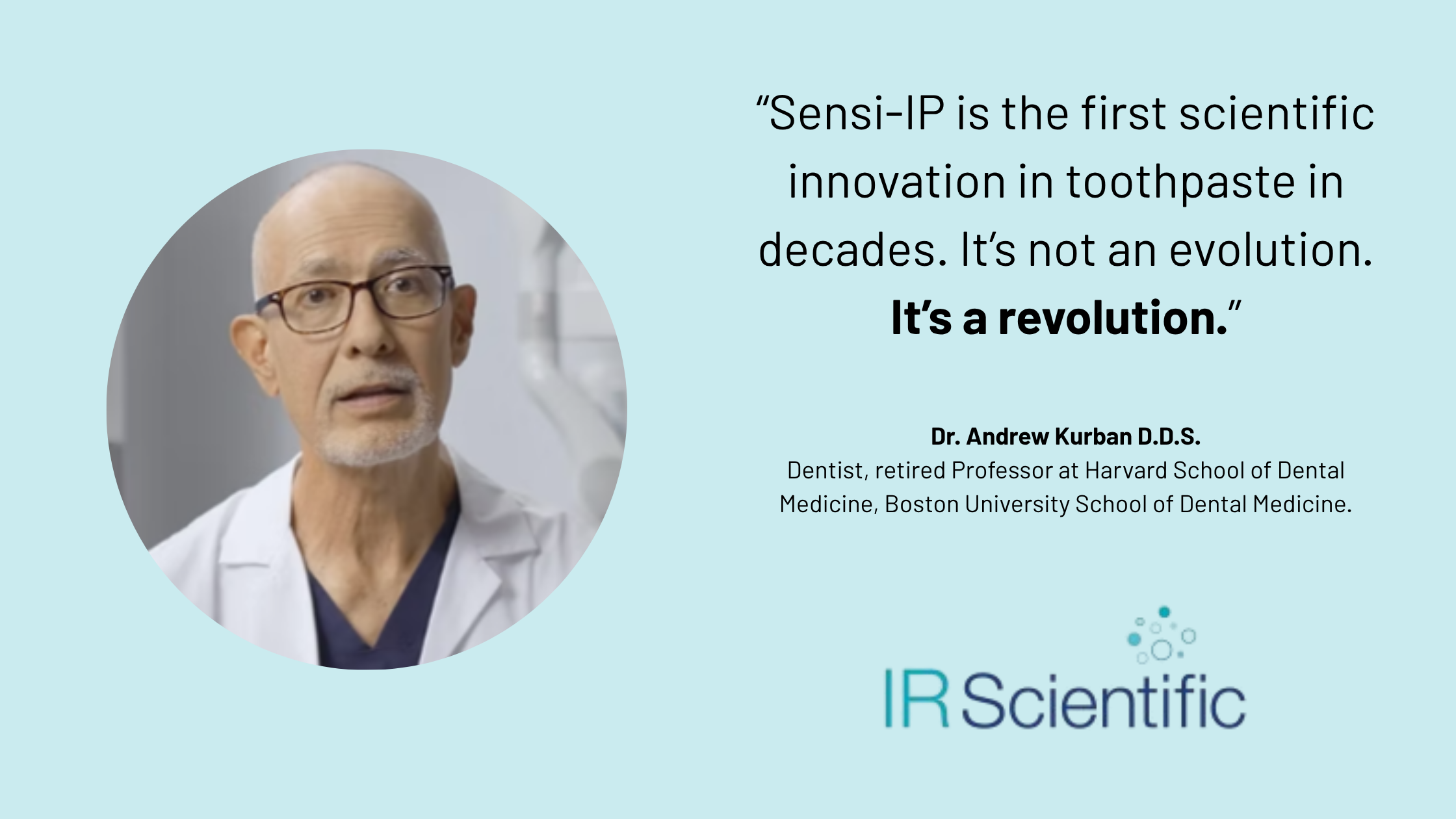
It was a chance encounter in a Shopper’s Drug Mart in Bedford that led to a major breakthrough in the dental industry. That chance encounter, in 2017, brought Dr. Daniel Boyd, a professor and researcher at Dalhousie University, and Andrew Doyle, a business strategist and entrepreneur together for a first meeting.
Boyd was doing cutting edge research into technology for sensitive teeth—an ingredient that would not only help people with pain, but also promote remineralization and repair damaged tooth enamel—and Doyle had the skills and experience to bring it to market. The two discussed their business philosophies and how they might be able to work together. “In fact, we continued to talk for most of the next year, aligning our vision of where we wanted to take the company,” says Doyle.
In January 2018, they incorporated their new company—IR Scientific—and proceeded to build a community of investors. “It was important for us to get the right kind of investors, ones that would see the value in us paying ourselves a decent wage for doing the hard work of creating a start up,” says Doyle, who became the director of the company and head of business development.
To that end, Doyle reached out to Peter Hickey, a local investor with 20+ years experience leading both established and start-up companies with a global focus. He had already cofounded a few other companies in the life sciences sector and came on as the third co-founder and Executive Director, specifically taxed with securing investment funds.
ACOA’s Business Development Program was one of the first funders, providing a $500,000 repayable contribution. This enabled the company to quickly set up a research lab, a production facility, and hire staff over the course of weeks rather than months. Private investors kicked in another $1 million and the company immediately poured a portion of that money into market research.
“Three out of four people experience pain from sensitive teeth, which has a real impact on quality of life,” says Doyle. The company talked to 4000 consumers in the U.S. to find out which factors were most important for sensitivity relief. Unsurprisingly, the first thing consumers mentioned was speed—how fast would the product work? The second thing they cared about was how long that relief would last. And the third thing was taste. “At the end of our research phase, we had a really good understanding of what consumers with teeth sensitivity want in a product.”
The end result of this research and a recent successful clinical trial, is a product called Sensi-IP. “Our toothpaste encourages the body to unlock its own power of repair and regeneration.” And it does so simply, with two minutes of brushing in the morning and the evening. It’s been described by a retired professor at Harvard School of Dental Medicine as: “The first scientific innovation in toothpaste in decades. It’s not an evolution. It’s a revolution.”
All of this is music to the ears of IR Scientific’s founders, who are continuing to reap the benefits of being based in Nova Scotia. “Our region has such a great network of passionate folks and amazing support systems too.” Doyle adds that in the beginning, the company felt very well looked after by organizations such as Life Sciences Nova Scotia, who not only provided insights into funding opportunities, but also lots of connections and introductions.
Over the last few years, the company has grown to 12 employees at their lab in the Invest Nova Scotia facility in Halifax. Doyle says that the company loves to hire people who thrive in an early-stage infrastructure and who are naturally curious, solution-finding team-players.
“We build things to be used by people, not just studied,” says Doyle, who contends that positive energy and empathy are important in their line of work. “We are a company of excited problem-solvers, dedicated to finding solutions to human problems.”
April 2025
Stuck Rings, solved: Ring Rescue Defines a New Standard in Emergency Care for a Common Global Problem
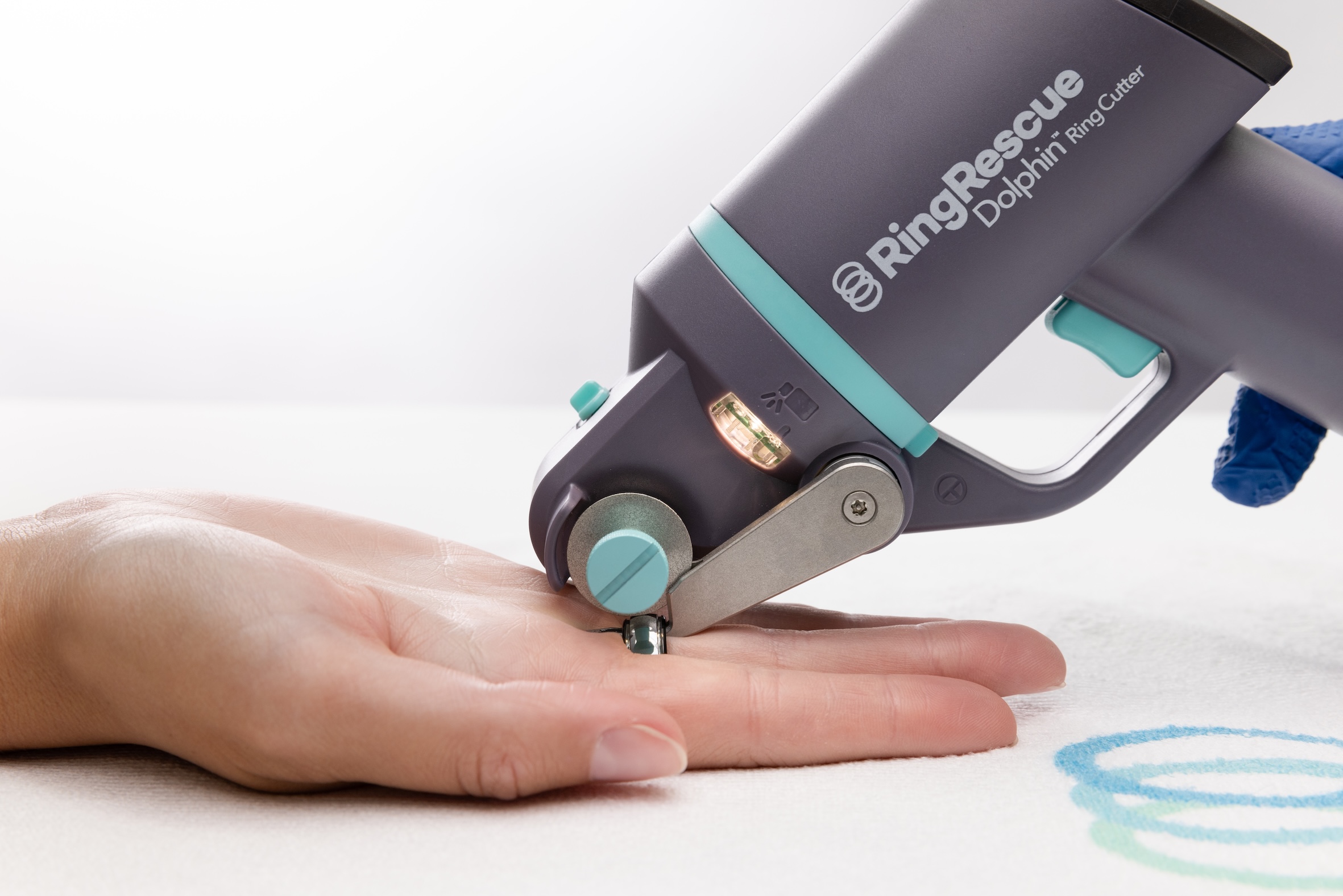
Ever had a ring stuck on your finger? If you’re lucky, a little dish soap did the trick. If not, you may have needed a visit to an emergency department for help. And there, you might have been surprised to have a healthcare provider use a repurposed hardware store tool like a Dremel grinder on your finger. But it’s a tool with serious risks, including burns, lacerations, and, in extreme cases, even the possibility of surgery or finger amputation.
Enter Nova Scotia’s own Ring Rescue, a company founded in 2018 by Dr. Kevin Spencer, Patrick Hennessey, and Brad MacKeil. They developed two innovative products: the Ring Rescue Compression Device, which uses controlled air pressure to painlessly reduce finger swelling; and the Dolphin Ring Cutter, a state-of-the-art tool designed to cut through any ring metal safely and efficiently. Both are part of the Ring Rescue Kit, a medical device now used by hospitals, fire departments, EMS teams, and other professionals across North America.
“Over a billion people wear rings, and ring entrapment is a common medical problem worldwide,” says Dr. Kevin Spencer, CEO of Ring Rescue, who is also an emergency physician and mechanical engineer. He explains that traditional ring cutters were simple tools designed for softer metals like gold and silver. But today’s rings are made from titanium, tungsten, stainless steel—extremely durable materials that are much harder to cut. “That creates a real challenge when a tightly stuck ring begins to strangle a finger,” says Spencer. “As a medical professional, you want the right tools to safely solve the problem—but until now, those tools didn’t exist.”
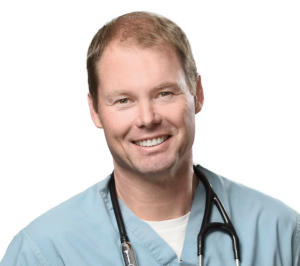
Co-founder and emergency physician Dr. Kevin Spencer
That’s why the Ring Rescue team was keen to develop a medical-grade solution to solve this challenge. Since its inception, the company has raised over $5 million from investors and received grants from ACOA, along with contributions from the National Research Council. This funding enabled the crucial research, development, and commercialization efforts needed to launch what has quickly become the world’s best solution for this problem.
Key innovations in the Dolphin Ring Cutter include the ability to cut all ring metals in minutes and a computer-driven feedback loop that minimizes heat generation, eliminating the risk of burns. Its intuitive, user-friendly design allows for precise, automated cutting while continuously tracking progress and alerting the operator when the ring is fully severed.
Early on, Ring Rescue gained national attention through an interview on CBC’s As It Happens and a high-profile appearance on Dragon’s Den, where their compelling pitch secured a $400,000 deal. In recent years, the company has expanded rapidly, entering the U.S. market in 2022 and securing over 1,300 customers, including some of the most prestigious medical institutions in the world—Mayo Clinic, Cleveland Clinic, Cedars-Sinai, Duke, UCLA, and more.
Now, Ring Rescue is preparing for international growth and developing a second-generation Dolphin Ring Cutter to meet certification requirements beyond North America.
Here at home, Nova Scotia’s provincial healthcare system was one of the first to adopt the Ring Rescue Kit, equipping every emergency department and urgent care centre across the province. A recently released report highlights feedback from both healthcare professionals and patients who have used it. “Ninety-five percent of surveyed emergency department physicians rated the Dolphin Ring Cutter as ‘easy' or 'very easy’ to use,” says Spencer. “It’s saving time, reducing costs, and significantly improving patient outcomes.”
While Spencer still practices as a physician part-time, most of his focus is now on Ring Rescue. “We’ve grown from three of us working in my basement to a team of 18 full-time employees and a dedicated manufacturing facility in Dartmouth,” he says.
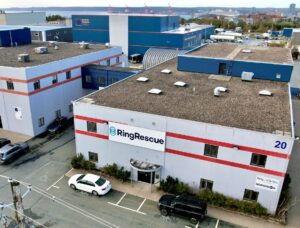
An exterior photo of the Ring Rescue facility
“I’m incredibly proud of how far we’ve come and of the world-class team we’ve built.” The company’s Board of Directors and Advisory Board includes award-winning executives and leading experts in the medical device industry.
But for Dr. Spencer, the most rewarding part of this journey isn’t just the innovation—it’s the impact. “Knowing our products are helping real people is incredibly fulfilling,” he says. “We’ve created an outstanding product, solved a medically-significant issue, and we’re establishing Ring Rescue as the global standard of care.”
Read more about their company here: https://www.ringrescue.com
February 2025
Healing Wounds, Changing Lives: The DeCell Technologies Story
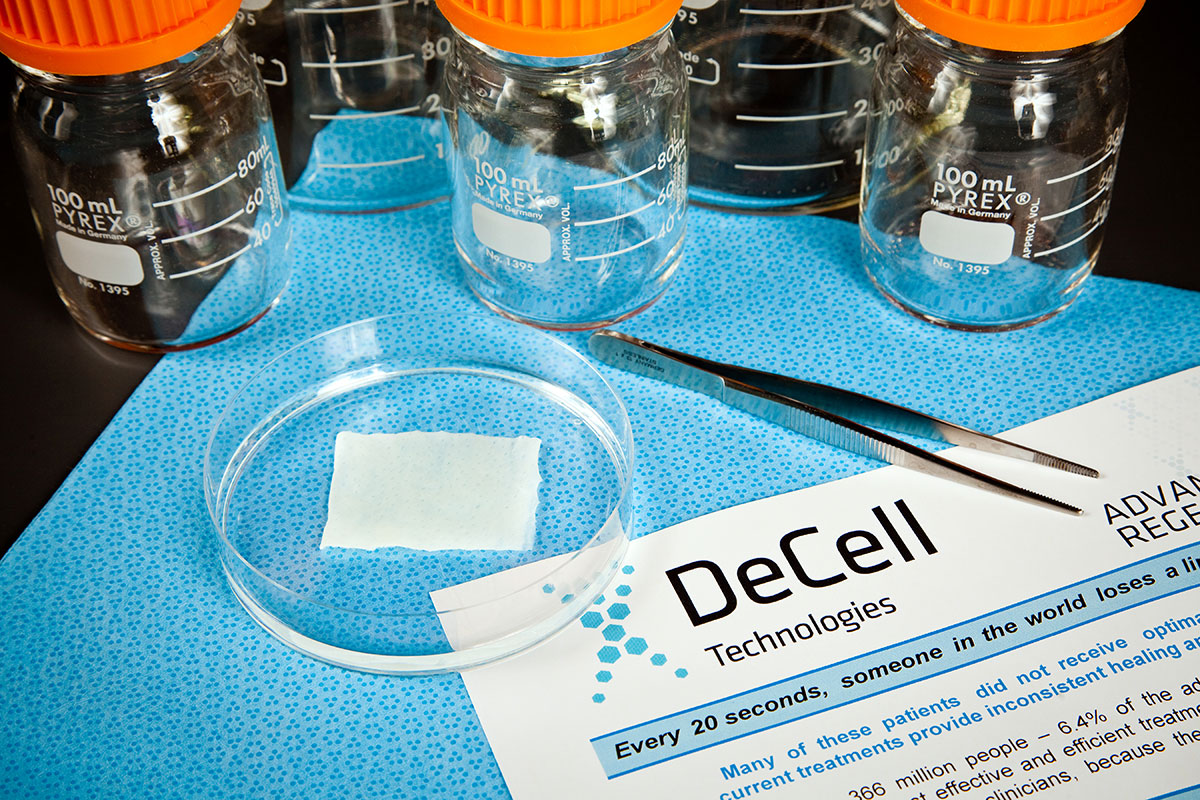
For Dr. Paul Gratzer, the best thing about his line of work is that it helps real people who are suffering to feel better.
His company, DeCell Technologies Inc. is an emerging biomedical technology company that’s been around since 2012. Co-founded with Sean Margueratt, former manager of the regional tissue bank in Halifax, the company grew out of 25 years of Dr. Gratzer’s research into wound care and optimizing the use of human tissue.
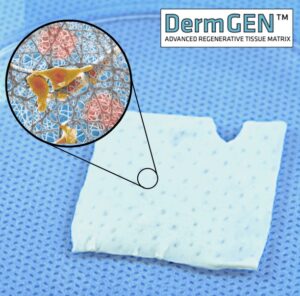 Their work has resulted in a product called DermGEN™, an innovative technology that takes donated human tissue and removes the cellular components (what another body would reject) along with potential bacteria and viruses. What’s left is a sterile, safe, and effective biological scaffold that can be applied to a patient with skin ulcers or open wounds.
Their work has resulted in a product called DermGEN™, an innovative technology that takes donated human tissue and removes the cellular components (what another body would reject) along with potential bacteria and viruses. What’s left is a sterile, safe, and effective biological scaffold that can be applied to a patient with skin ulcers or open wounds.
“Our product cues the cells to activate what is in their DNA, causing tissue regeneration and healing,” says Gratzer, who is also an Associate Professor at the School of Biomedical Engineering at Dalhousie University. DeCell partners with RegenMed, a not-for-profit Tissue Bank located in Thunder Bay, Ontario; they manufacture and ship the product to clinics and hospitals across Canada.
One of DermGEN™’s largest successes to date has been a pilot study at the QEII’s Multi-Disciplinary Leg Ulcer Clinic in Halifax, funded by CAN Health and managed by Nova Scotia Health’s Innovation Hub. The patients in the trial were diabetics with foot and leg ulcers—basically open wounds—that for years refused to heal. The use of DermGEN™ on these patients has been life changing as their ulcers healed and a whole new quality of life became available.
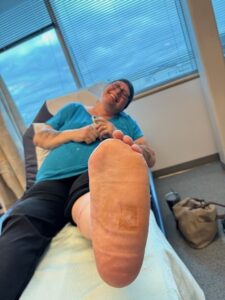 These same positive outcomes are being repeated in other clinical trials across Canada, delighting DeCell’s founders and igniting a swell of optimism for the future. In addition, first-person testimonials report that DermGEN™ is easy to work with. The completely sterile product comes in a small peel-back pouch, ready to use upon opening. Other products require thawing or rehydrating the tissue through a series of soakings and washings that can take up to 30 minutes. Clinicians say this one-time application of DermGEN™ represents significant time-saving advantages.
These same positive outcomes are being repeated in other clinical trials across Canada, delighting DeCell’s founders and igniting a swell of optimism for the future. In addition, first-person testimonials report that DermGEN™ is easy to work with. The completely sterile product comes in a small peel-back pouch, ready to use upon opening. Other products require thawing or rehydrating the tissue through a series of soakings and washings that can take up to 30 minutes. Clinicians say this one-time application of DermGEN™ represents significant time-saving advantages.
“We talked to a lot of clinicians as we developed the product,” says Gratzer. “Ease of use was one of their top concerns, but they also told us they needed the product to be consistent and able to be applied in a variety of different patient situations.” To that end, DeCell has started experimenting with using DermGEN™ for other types of health conditions, including cysts that have become infected causing deep wounds and also on amputated limbs to promote healing.
Buoyed by their Canadian success, Gratzer and Margueratt are currently investigating both the European and American markets and DeCell is poised to have an international reach within the next decade. Having Nova Scotia as their home base, though, has brought tremendous benefits. Not only has the company benefitted from Dr. Gratzer’s lab at Dalhousie University, but with the “start-up” community in the province becoming more robust, there is ever more support available.
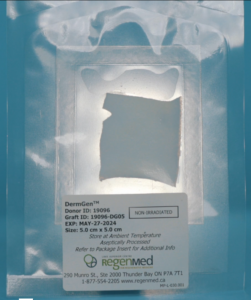 “When we first started out, there weren’t a lot of associations or organizations helping start-ups and entrepreneurs,” says Gratzer. Their first support came through SpringBoard Atlantic and ACOA, with additional support in recent years from Life Sciences Nova Scotia and the Innovation HUB of Nova Scotia Health.
“When we first started out, there weren’t a lot of associations or organizations helping start-ups and entrepreneurs,” says Gratzer. Their first support came through SpringBoard Atlantic and ACOA, with additional support in recent years from Life Sciences Nova Scotia and the Innovation HUB of Nova Scotia Health.
Both Gratzer and Margueratt have full-time jobs in addition to running DeCell. As everyone knows, start-ups require a lot of effort and can be rife with trials and tribulations. Thankfully, the two founders match each other in their commitment to the company and also the meaning they extract from the work they are doing.
“Sean and I are equally passionate about what we do and also excited about the potential benefit to so many people around the world,” says Gratzer. “As a researcher, I feel incredibly fortunate to have applied my research to a particular problem in human health and to be able to see success and results. It’s an incredible feeling.”
January 2025
Nova Scotia's Hidden Gem: Precision BioLogic's Global Impact in Medical Diagnostics

When Paul Empey was hired to be a consultant at Precision BioLogic, he had no idea he would one day become the company’s President and CEO. Originally from Boston, Empey had worked with a line-up of successful entrepreneurs, including John Risley of Clearwater Seafoods and Louis Deveau of Acadian Seaplants. He brought with him both ambition and enthusiasm.
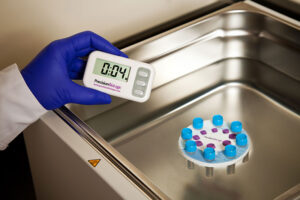 Empey was hired to make recommendations for the 42-year-old company that specializes in frozen diagnostic products for bleeding and clotting disorders, its challenges, and its opportunities for growth. Turns out, the Board of Directors was so impressed with Empey’s innovative ideas that they offered him the top job.
Empey was hired to make recommendations for the 42-year-old company that specializes in frozen diagnostic products for bleeding and clotting disorders, its challenges, and its opportunities for growth. Turns out, the Board of Directors was so impressed with Empey’s innovative ideas that they offered him the top job.
That was a decade ago. Since then, there’s been massive product development, a fully executed strategic plan, the acquisition of another company—Affinity Biologicals in Ancaster, ON—plus sustained growth year after year.
“Our company is founded on the principles of respect, cooperation, collaboration, compassion, and accountability,” says Empey. “And it’s these values in action that have led to our success.” Indeed. Precision BioLogic is known the world over and has become synonymous with the ability of hemostasis labs to deliver timely and accurate results.
The key to Precision BioLogic’s success is their cryocheck™ brand of frozen hemostasis diagnostic products. “All our customers need to do is go to the freezer, pull out one of our products, thaw it, and within minutes it’s ready to use,” says Jon Geske, the company’s Chief Scientific Officer. “It’s incredibly fast and efficient.”
Jon Geske - Chief Scientific Officer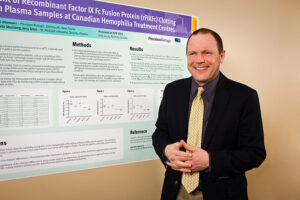
The company also needs to stay on top of the evolving needs of the laboratories and clinicians who use Precision BioLogic’s products. “Enhancing patient care is at the core of everything we do,” says CEO Empey. “ So, we love it when we hear back from our customers about what is working, what they struggle with, and what they actually need on the ground.”
In order to meet those needs, Precision BioLogic is continuing its expansion. In fact, there is the potential for huge growth on the horizon due to recently being acquired by Procuritas Capital Investors in Sweden. A private equity investor, focused on investing in and growing mid-market companies, Procuritas helps to build strong and sustainable businesses around the world. “They saw what we were doing, recognized our success, and decided to invest and continue to help us grow,” says Empey. “They are bringing a whole new level of excitement and potential to the future growth of our company.”
 For instance, this year Precision BioLogic is adding 8000 square feet to its Dartmouth facility, headquarters for the company that employees 78 people and that happily calls Nova Scotia home. The fact that the province is a hotbed of bioscience has really benefitted the company. But when you add the other elements that Nova Scotia has to offer, it’s an unbeatable combination. “We love that we live and work in a place where it’s possible to have a wonderful quality of life, hire fantastic employees, and still have a world-wide reach,” says Geske.
For instance, this year Precision BioLogic is adding 8000 square feet to its Dartmouth facility, headquarters for the company that employees 78 people and that happily calls Nova Scotia home. The fact that the province is a hotbed of bioscience has really benefitted the company. But when you add the other elements that Nova Scotia has to offer, it’s an unbeatable combination. “We love that we live and work in a place where it’s possible to have a wonderful quality of life, hire fantastic employees, and still have a world-wide reach,” says Geske.
Empey agrees. “Nova Scotia is a real hidden gem,” he says. “One of the big benefits of working in a less densely populated area is that the workforce feels more like family. We’ve got that in spades and are so grateful to our employees for their commitment and hard work.”
The next phase of Precision BioLogic’s strategic planning is to embrace bigger, more cutting-edge opportunities that carry more risk. “With risk comes reward,” says Empey. “Our hope over the next few years is to double in size by building on our history of excellence and our solid foundation.”
Watch this spot!